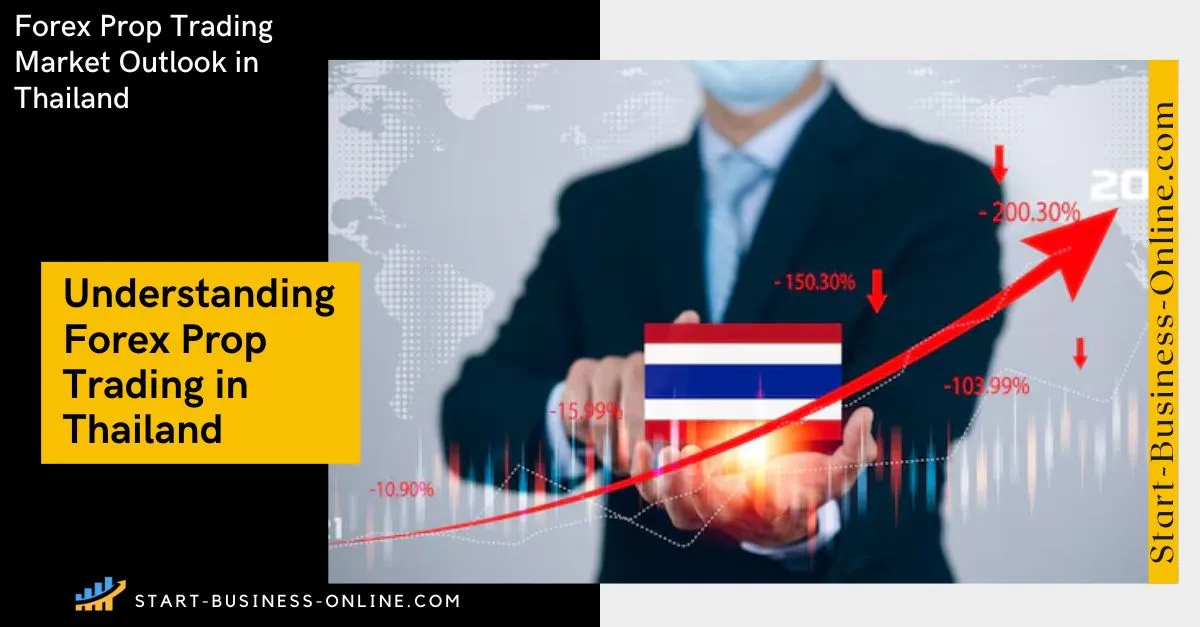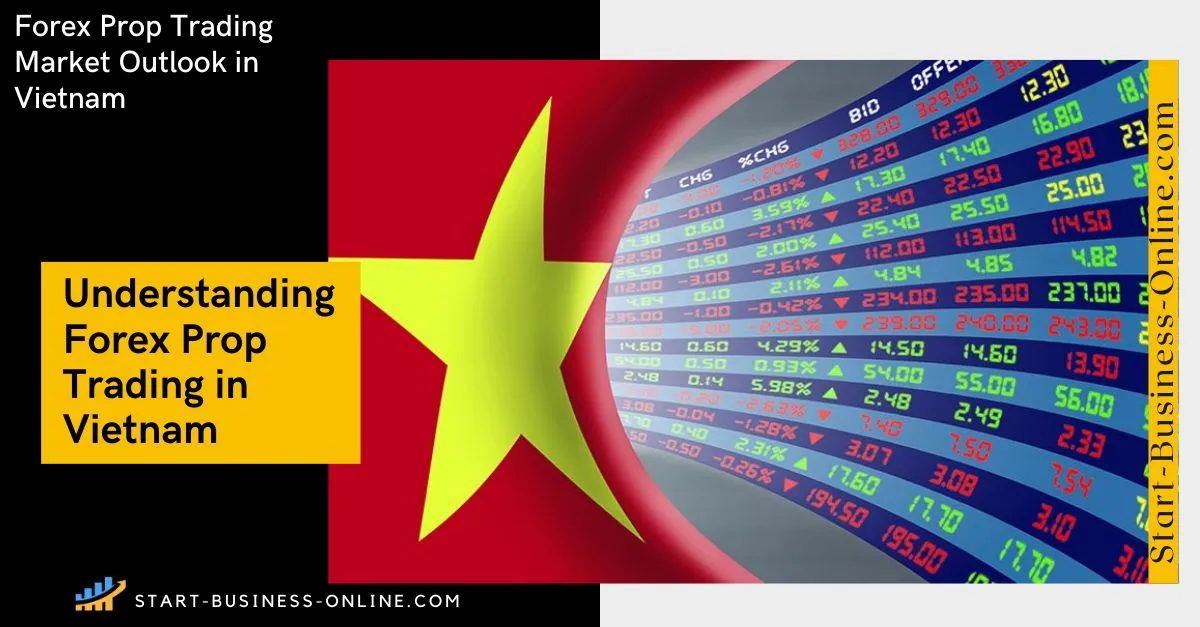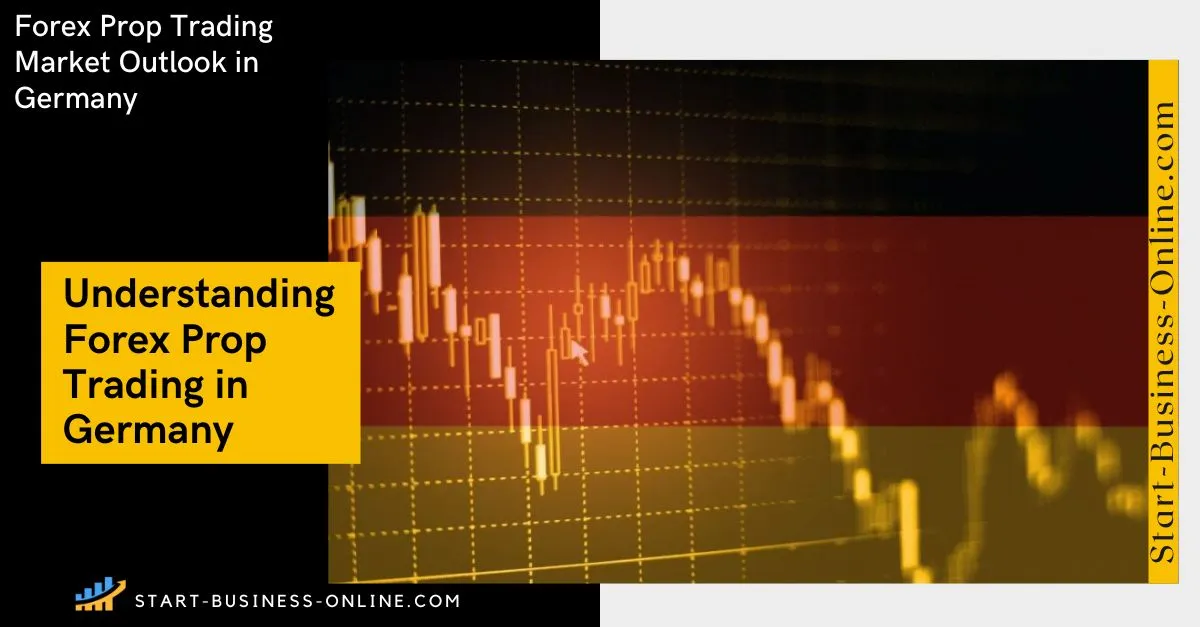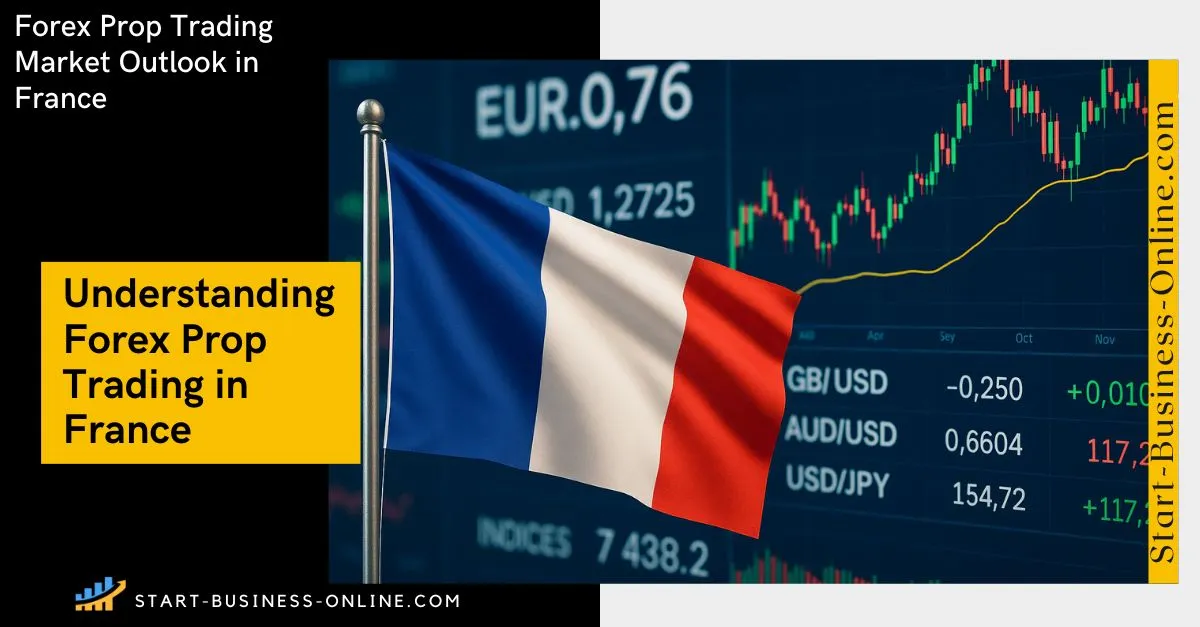Overview of Forex Prop Trading in Turkey
Forex trading, also known as foreign exchange trading, involves the exchange of currency pairs with the aim of profiting from fluctuations in their exchange rates. Operating as a decentralized market, forex trading runs 24/7, enabling traders to participate in transactions across major financial hubs worldwide.
In Turkey, forex trading has garnered significant interest due to its potential for high returns, ease of access, and the opportunity to engage with international markets. Local traders often focus on currency pairs involving the Turkish Lira (TRY), such as USD/TRY or EUR/TRY, which are highly traded within the region.
Forex proprietary trading (prop trading) firms in Turkey offer traders the unique advantage of trading with the firm’s capital. This setup allows individuals to earn profits without exposing their personal funds to risk. However, given the specific regulatory landscape governing forex trading in Turkey, it’s essential for traders to choose prop firms that comply with local laws and provide competitive terms.
This guide aims to assist Turkish traders in assessing critical factors such as profit-sharing models, fee structures, and evaluation processes. By emphasizing firms with clear policies and equitable profit splits, traders can enhance their trading journeys while minimizing risks. With informed decisions, they can unlock consistent growth and long-term success in the forex market.
Regulatory Oversight of Forex Trading in Turkey

Is Forex Trading Legal in Turkey?
Yes, forex trading is legal in Turkey and operates under the strict supervision of the Capital Markets Board (CMB), locally referred to as Sermaye Piyasası Kurulu (SPK). The CMB has established a comprehensive regulatory framework designed to promote transparency, fairness, and investor protection within the forex market.
Both domestic and international traders are allowed to participate in Turkey's forex market, provided they adhere to the guidelines set forth by the CMB. These guidelines include licensing requirements for brokers, restrictions on leverage ratios, and measures to ensure ethical trading practices.
By implementing these regulations, the CMB aims to mitigate risks such as broker misrepresentation, unlicensed operations, and excessive leverage exposure. These safeguards create a secure trading environment, enabling participants to engage in forex trading with confidence and compliance.
The Role of the Capital Markets Board (CMB)
The Capital Markets Board (CMB), known locally as Sermaye Piyasası Kurulu (SPK), serves as the chief regulatory body governing forex trading in Turkey. Tasked with upholding market integrity and safeguarding investor interests, the CMB implements rigorous regulations for brokers and traders in the forex industry.
Key functions of the CMB include:
- Granting licenses to forex brokers to ensure adherence to Turkish regulatory standards.
- Establishing leverage limits to minimize risks for retail traders.
- Conducting oversight to detect and prevent fraudulent practices.
Through its robust regulatory measures, the CMB fosters a secure and transparent trading environment for both domestic and international market participants.
Forex Brokers and Prop Firms in Turkey
Types of Forex Brokers and Prop Trading Firms Operating in Turkey
Forex brokers in Turkey can be classified into two primary categories:
- Domestic Brokers
These brokers are regulated by the Capital Markets Board (CMB), ensuring they operate within Turkey’s established legal and regulatory framework. Domestic brokers are specifically designed to meet the needs of Turkish traders, offering:
- Platforms in the Turkish language.
- Tailored educational resources and market analysis.
- Localized customer support services.
By adhering to CMB regulations, domestic brokers provide a secure trading environment with restrictions on leverage to reduce risks for retail investors.
- International Brokers
Some traders prefer to work with international brokers regulated by foreign authorities such as the Financial Conduct Authority (FCA) or Cyprus Securities and Exchange Commission (CySEC). These brokers often provide:
- Access to higher leverage options.
- A wider range of trading instruments.
- Advanced trading tools and features.
However, Turkish traders using international brokers must ensure their activities align with Turkish forex regulations to avoid potential legal complications. Conducting thorough due diligence on the broker’s credibility and compliance is crucial for a safe trading experience.
Market Volatility and Forex Prop Trading
For Forex prop traders in Turkey, understanding and adapting to both global and local economic dynamics is essential. Factors such as currency fluctuations, inflation, and political instability can significantly influence Forex markets. To effectively manage these challenges, traders can rely on the following strategies and tools:
Leveraging Technology for Volatility Management
Advanced Forex proprietary trading firms are increasingly utilizing cutting-edge technologies like algorithmic trading systems. These systems automatically execute trades based on pre-defined criteria, enabling traders to respond swiftly to market volatility. By doing so, traders can capitalize on sudden price movements while minimizing potential losses.
Many firms also offer intuitive dashboards that provide real-time risk monitoring. These tools allow traders to track their exposure to high-risk situations, adjust their strategies in real time, and maintain better control during periods of market turbulence.
Employing Risk-Adjusted Strategies
Strategies such as hedging are highly valuable for Turkish traders, offering a way to offset potential losses with gains from opposing positions. Beyond high-frequency trading, diversifying into strategies like trend-following or mean reversion can help traders adapt to varying market conditions.
Forex prop firms that support comprehensive risk-management tools empower traders to refine their approaches, enhancing their ability to navigate volatile market environments effectively.
By focusing on robust risk management and leveraging technology, Turkish Forex prop traders can optimize their trading outcomes, turning market volatility into opportunities for growth.
What is the Best Time to Trade Forex in Turkey?
The optimal time for Forex trading in Turkey is during periods of high market liquidity, typically when major trading sessions overlap. The Forex market operates across four global time zones, but the overlap between the U.S. and London sessions provides the most trading activity and opportunities for profit.
For Turkish traders, this overlap occurs between 3:00 p.m. and 6:00 p.m. Istanbul time, which corresponds to 8:00 a.m. and 11:00 a.m. Eastern Standard Time (EST). This period is particularly favorable for trading European currencies, including the Euro (EUR), Pound Sterling (GBP), and Swiss Franc (CHF), as these currencies experience heightened activity and liquidity during this time.
When to Pause Forex Trading in Turkey
Avoiding low-liquidity periods is often wise, especially for novice traders. Low liquidity can lead to unpredictable price movements, making it challenging to execute trades effectively. Times to consider pausing Forex trading include:
- Early Monday Morning and Late Sunday Night: These are transitional times when the market is just opening or closing, often marked by lower trading activity.
- Public Holidays and Significant News Events: Market behavior can become erratic during major holidays or when impactful news is released, leading to sharp price fluctuations.
- Asian Trading Sessions: For Turkish traders, the Asian session, which occurs during early morning hours in Istanbul, typically experiences lower liquidity compared to European or U.S. sessions.
Additionally, traders should refrain from trading if they are unable to monitor their positions due to personal distractions such as health issues, travel, or professional commitments. Staying disciplined and trading only during optimal conditions helps mitigate risks and enhances long-term success in the Forex market.
Risks Associated with Forex Trading in Turkey
- Financial Risks
Forex trading carries inherent financial risks, largely due to market volatility, leverage, and liquidity fluctuations. For Turkish traders, the USD/TRY currency pair is especially volatile, influenced by factors such as geopolitical developments, economic policies, and global market shifts.
To mitigate these risks, Turkish traders can adopt the following strategies:
- Utilize Risk Management Tools: Tools like stop-loss and take-profit orders can help limit potential losses and lock in profits during volatile market conditions.
- Restrict Leverage Usage: High leverage can amplify both gains and losses, so maintaining conservative leverage levels can prevent excessive financial exposure.
- Portfolio Diversification: Spreading investments across multiple currency pairs or financial instruments can reduce the risk associated with a single market or currency pair.
- Legal and Compliance Risks
Engaging in Forex trading without adhering to regulatory standards can result in significant legal and compliance issues. For Turkish traders, this includes:
- Trading with Unregulated Brokers: Brokers not licensed by the Capital Markets Board (CMB) may operate outside Turkish law, posing risks of fraud or financial loss.
- Non-Compliance with Tax Laws: Failing to meet local taxation requirements can lead to fines or legal penalties.
To minimize legal risks, traders should:
- Verify that their broker is licensed and compliant with CMB regulations.
- Stay informed about local laws and guidelines regarding Forex trading and taxation.
By ensuring regulatory compliance and working with trustworthy brokers, Turkish traders can create a secure trading environment and focus on long-term success in the Forex market.
Tax Implications for Forex Traders in Turkey
- Income Tax on Forex Gains
In Turkey, profits from Forex trading are considered taxable income under the country’s tax regulations. The amount of tax owed depends on the trader's annual income and whether their trading is classified as a professional or occasional activity:
- Professional Traders: Traders engaging in frequent and large-scale activities may be classified as professionals and could face higher tax rates due to their earnings being considered part of their professional income.
- Occasional Traders: Individuals trading sporadically and earning smaller profits might be taxed at lower rates.
To comply with Turkish tax laws, traders must maintain accurate and detailed records of their trading activities, including profit and loss statements, transaction histories, and any related documentation. These records are vital for calculating taxable income and preparing for audits, if necessary.
- Reporting Requirements for Forex Traders
Forex traders in Turkey are legally obligated to report their trading income to the Revenue Administration, known as Gelir İdaresi Başkanlığı (GİB). Proper and timely reporting ensures compliance with tax regulations and helps avoid penalties or legal complications.
Best Practices for Compliance:
- Consult a Tax Professional: Engaging a tax advisor familiar with Forex trading and Turkish tax law can help traders understand their obligations and optimize their tax strategies.
- Use Reliable Accounting Systems: Utilizing software or services to track trading income, expenses, and tax-deductible items can streamline reporting and minimize errors.
- Understand Deductions: Certain expenses related to Forex trading, such as trading platform fees or research subscriptions, may be deductible under Turkish tax laws.
By adhering to these guidelines and maintaining transparency in their financial dealings, Forex traders in Turkey can meet their tax obligations while optimizing their financial outcomes.
Popularity of Forex Prop Trading Among Turkish Investors
1. Demographics of Forex Traders in Turkey
Forex trading has witnessed growing interest among a wide range of Turkish investors, including:
- Young Professionals: Many are drawn to Forex trading as a means of earning supplementary income while leveraging their analytical and decision-making skills.
- Tech-Savvy Individuals: With the rise of online trading platforms and mobile apps, those comfortable with technology find Forex trading appealing and easily accessible.
- Experienced Investors: Seasoned investors view Forex as an opportunity to diversify their portfolios by incorporating currency trading alongside traditional asset classes.
This demographic shift is largely attributed to the increasing availability of user-friendly platforms and educational resources that make Forex trading more approachable for beginners and experts alike.
2. Factors Contributing to Increased Interest in Forex
Several factors have fueled the growing popularity of Forex trading among Turkish investors:
- Technological Advancements: Innovations like mobile trading apps, algorithmic trading systems, and AI-powered analysis tools have made Forex trading more convenient and efficient.
- Economic Uncertainty: Turkey’s fluctuating economic conditions and currency volatility, particularly in pairs like USD/TRY, have created opportunities for traders to capitalize on short-term price movements.
- Rising Financial Awareness: Enhanced access to educational content, webinars, and tutorials has empowered individuals to understand and engage in Forex trading with greater confidence.
These dynamics have established Forex trading as a viable and attractive investment option for Turkish investors, particularly those seeking flexibility, potential high returns, and access to global markets.
The prop trading industry is flourishing in Turkey as new firms are introduced on almost a daily basis. The number of traders who want to access a large trading capital is increasing in Turkey, offering an attractive market for prop firms. This intersection of interests from both traders and firms creates a scenario of a fast-growing prop trading industry in Turkey. To help our readers from Turkey, we have evaluated and listed the best options in the country, together with important insights and tips for success.
Prop trading industry in Turkey Explained
Prop trading has become very popular among Turkish financial traders, as it allows them to access a large trading capital that would be otherwise unavailable to many traders. As more and more Turkish traders try to get funded and manage large trading accounts, many firms have started to offer funded account challenges. This trend was further accelerated by the fact that prop firms are not required to hold a license like brokers do. This unique business model allows firms to be more flexible and launch businesses with relatively lower budgets when compared to financial brokers. The costs for prop firms are lower and the industry is thriving across the globe with a multitude of reliable brands operating in the sector. The only critical challenge for Turkish prop traders is to develop trading strategies for passing evaluations and selecting reliable firms.
Considerations for beginners
Beginners should prioritize firms with the following features:
Find prop firms that understand Turkey’s trading landscape. Turkey has unique rules for trading, so it’s important to work with firms that get the local market. Look for companies like FTMO or Earn2Trade that offer options for holding trades over weekends and support for leverage. Avoid firms that lack clear rules or reputation, as they might be riskier with your funds and support services.
Prop Firms that Offer Swap-Free Accounts
Prop trading firms are in the business of funding great traders from all walks of life. To truly open up forex trading opportunities to all, many prop firms now offer Swap-Free or Islamic Accounts that adhere to Islamic Law by eliminating roll-over interest and interest-related fees.
What is swap?
Swap in the context of forex trading is the interest that one pays or receives for holding a position overnight. Forex trading is actually purchasing one currency against another, and since different currencies have different interest rates, if you hold a position overnight you either owe or are due that interest rate difference.
What is a swap-free account?
A swap-free account is a forex trading account that does not include any exchange of interest rate fees. Swap-free accounts are also known as Islamic accounts because the Muslim faith prohibits the use of interest. Muslims can therefore open swap-free accounts to trade forex without violating any tenets of their faith.
Best Prop Firms that Offer Swap-Free Accounts
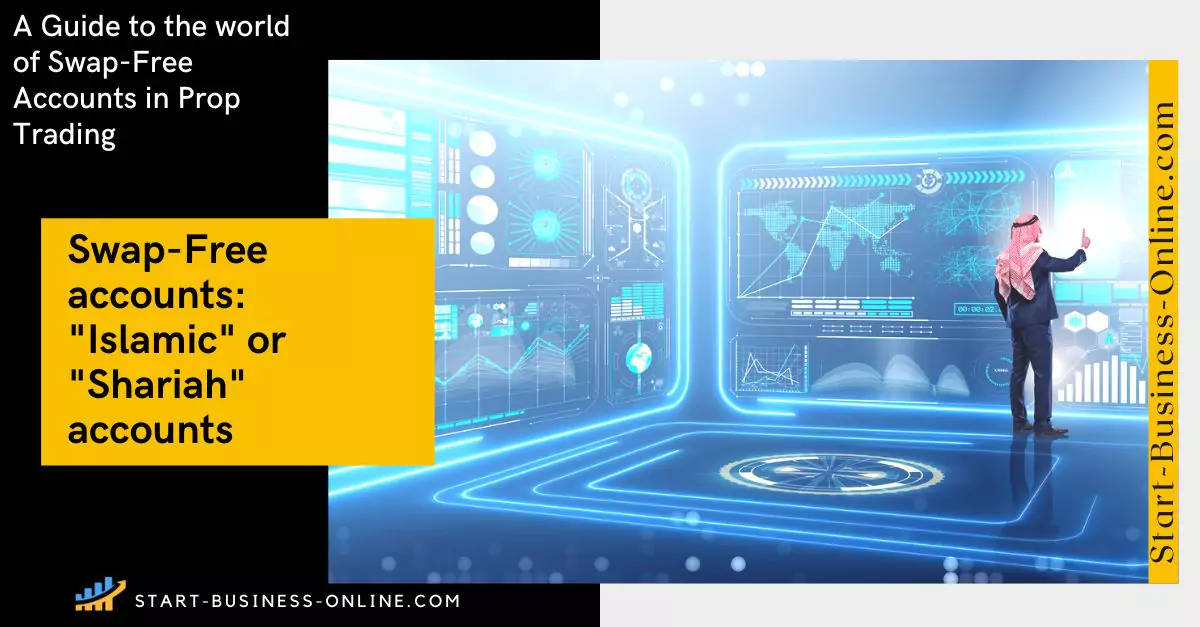
| Prop Firm | Swap-Free Accounts |
|---|---|
| FundedNext | |
| FTMO | |
| the5ers | |
| FTUK | |
| Lux Trading Firm |
No-Swap Period: Please keep in mind that some prop firms will only allow you a limited amount of time in which you can trade swap-free. This is known as no-swap or swap-free periods.
Prop Firms that DON’T Offer Swap-Free Accounts (yet)
| Prop Firm | Swap-Free Accounts |
|---|---|
| FunderPro | |
| FunderPro Futures | |
| Funding Pips | |
| FXIFY | |
| Apex Trader Funding | |
| Bullwaves Prime | |
| SabioTrade | |
| Hola Prime | |
| NeomAAA Funds | |
| Top One Futures | |
| Take Profit Trader | |
| ThinkCapital | |
| UltraCap Trading | |
| TX3 Funding (Toptier Trader Rebrand) | |
| MyFundedFX | |
| BlueBerry Funded | |
| Topstep | |
| Blue Guardian | |
| Funded Trading Plus | |
| Top One Trader | |
| For Traders | |
| 1of1 Funding | |
| Alpha Trader | |
| DNA Funded | |
| PROP365 | |
| Funded Squad | |
| Propel Capital | |
| Plutus Trade Base | |
| Elites Funding | |
| EverBlue Trader | |
| PIP Traders Funding | |
| Bold Fund | |
| Clarity Traders | |
| Tycoon Funded | |
| Upcomers | |
| TradingFunds | |
| Funded Prime | |
| SuperFunded | |
| TakeCap | |
| Earn2Trade | |
| Crypto Fund Trader | |
| City Traders Imperium | |
| E8 Markets | |
| Goat Funded Trader | |
| The Trading Pit | |
| PipFarm | |
| Tradexprop |
| Prop Firm | Prop firms that allow clients from turkey |
|---|---|
| FunderPro | |
| Funding Pips | |
| FXIFY | |
| FundedNext | |
| FTMO | |
| the5ers | |
| SabioTrade | |
| NeomAAA Funds | |
| UltraCap Trading | |
| BlueBerry Funded | |
| Blue Guardian | |
| FTUK | |
| Funded Trading Plus | |
| Earn2Trade | |
| City Traders Imperium | |
| E8 Markets | |
| Lux Trading Firm | |
| Goat Funded Trader | |
| The Trading Pit | |
| PipFarm |
| Prop Firm | Prop firms that restrict clients from turkey |
|---|---|
| Apex Trader Funding | |
| TX3 Funding (Toptier Trader Rebrand) | |
| MyFundedFX | |
| Topstep |
Future Outlook for Forex Prop Trading in Turkey
Potential Growth of the Forex Prop Trading Market: Several factors suggest the Turkish forex market is poised for growth
- Rising Financial Awareness: Efforts by brokers and institutions to educate traders have created a more informed investor base.
- Technology Adoption: With increasing smartphone and internet penetration, more traders are accessing forex markets via mobile trading apps and automated systems.
- Macroeconomic Trends: The volatile nature of the Turkish Lira (TRY) continues to create opportunities for forex traders, encouraging market participation.
As these trends unfold, Turkey's forex market is likely to become a significant player in the global trading ecosystem, offering lucrative opportunities for traders and brokers alike.
FAQs on the Best Prop Trading Firms in Turkey
Yes, prop trading is legal in Turkey. Proprietary trading firms are allowed to operate in the country and are not subject to the same stringent regulations as brokers. However, traders should exercise caution and ensure they work with reputable firms to avoid potential risks.
No, most prop trading firms require traders to pay a fee to access funded challenges and qualify for a funded account. While some firms may offer free trial accounts for practice, these do not grant access to real capital. The fees typically vary based on the funding options and evaluation models provided by each firm.
The pass rate for prop firms remains relatively low, with only about 7% of traders successfully earning payouts. Approximately 60% of traders fail to pass evaluation challenges and lose their initial fees. This highlights the importance of robust strategy development, disciplined risk management, and thorough preparation before attempting prop firm challenges.



